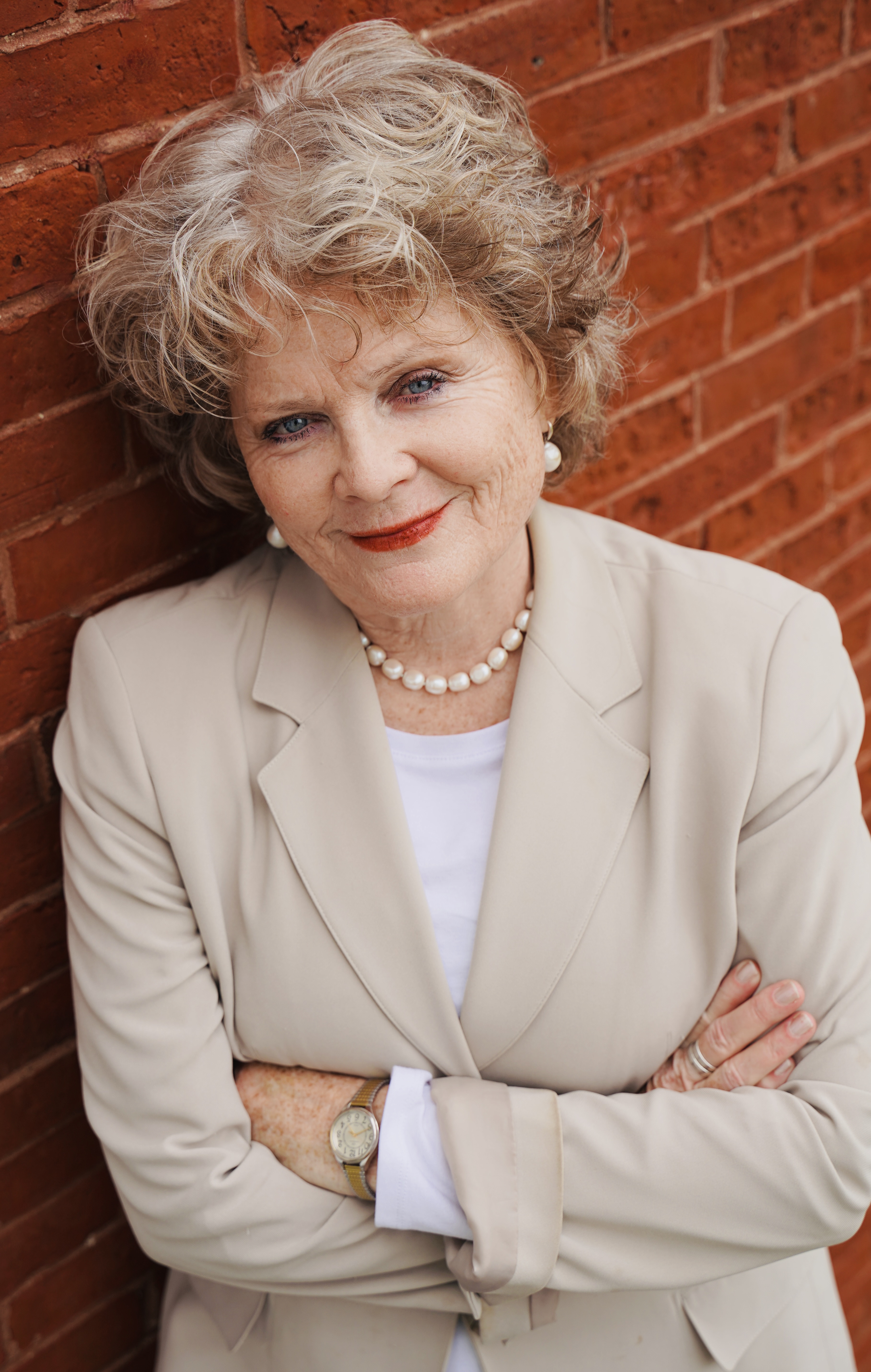Kathleen Soldati

Candidate Bio
Kathleen Soldati is a big picture thinker, veteran executive, marketing professional, and author/editor. She is most well known for helping place venerable, high-impact New Hampshire arts, culture and history nonprofits on the map. She served as Director of Marketing for The Music Hall and Portsmouth’s JSA Architects, Marketing Associate for New Hampshire Public Television, and Executive Director for Portsmouth Historical Society and the League of New Hampshire Craftsmen.
For her firm, SoldatiPR, she promoted the City as part of the 2013-2015 Portsmouth Tourism Marketing contract for the Portsmouth Chamber Collaborative, which awarded her the “Connector of the Year” in 2015. She served as editor on her third book, A History of Portsmouth New Hampshire in 101 Objects, for the Portsmouth 400th anniversary, for which she is now assisting with media relations. She works as Marketing Strategist for Cross Current Communications. A lifelong activist, her greatest strengths may be her welcoming inclusiveness, knack for seeing unique qualities in everyone, and building respectful work cultures.
Throughout her career, she garnered coverage for clients on The David Letterman Show and in the New York Times and Boston Globe. She co-produced events for Jane Goodall in New York City, and (for Global Citizens Circle) Graca Machel and Nelson Mandela in South Africa. Her first book, edited/published for the Concord Chapter, National Organization for Women, was Pro Se Divorce: Representing Yourself. Her second book, Business Comes to the Expert (co-authored with Brenda Richards), was a guide to managing, distilling and disseminating a distinctive book of knowledge as the basis for successful marketing. She taught marketing at New England College, UNH, Boston Architectural College and USAID in Estonia. A skilled communicator, she has used her voice and dynamic public presence as emcee, facilitator, disc jockey, vocalist, and voice over artist.
Candidate website
Candidate Facebook Page
Seacoastonline candidate profile
Portsmouth Patch
Why I'm Running
Many know me as the former director of marketing for The Music Hall and JSA Architects, from NH Public Television, from my firm, Soldati PR, and executive director for Portsmouth Historical Society and the League of NH Craftsmen. I edited the book, A History of Portsmouth NH in 101 Objects, currently I handle media relations for PortsmouthNH400, and work as a marketing strategist for CrossCurrent Communications.
What people may not know: I grew up in a household of 14 children whose parents were community activists who trained their children on creative problem solving and leadership, setting the expectation for action. From there, I became involved in every community in which I lived - student government, anti-war and women’s movements, and electoral politics.
Now I want to bring my problem solving skills and my values of inclusiveness and civil discourse to the table to serve the people of Portsmouth. I call on all residents of Portsmouth to recommit ourselves to our historic Portsmouth legacy of civil discourse. We once helped to end the Russo-Japanese War in 1905 with citizen diplomacy. What leadership! With that as inspiration, we can certainly address - in a civil manner - the challenges we face, from climate to housing. Civil discourse helps us welcome increased community participation: we are grateful to hear from some members of the community, we need to hear from others.
Civil discourse helps us to learn what values we share. I am optimistic about working together, living those shared values together, and building the best Portsmouth for the next generation. Those siblings I mentioned? They are bright, articulate and opinionated. When I started visiting Lincoln’s hometown in the 70s, I found an engaged community here with many diverse opinions. I felt right at home! And those problem solving skills drilled into us? They ensured I would always ask if everyone was at the decision making table; they provided me with new ways of seeing the big picture, pinpointing problems and best solutions; and identifying pulse points to be measured on the way to goals. I love solving problems, the more complicated the better.
The problems we face? Other cities in the US are facing. That means we can learn from each other. And, we can lead. We have the tools - Civil discourse. Inclusiveness. Comfort with disagreements. Problem solving. Optimism. We can build a shining example of a small American City, the vibrant, authentic, diverse, connected, and resilient city envisioned by our residents in the last Master Plan. I am optimistic about this moment in history and I am energized by the idea of serving the residents of Portsmouth. I'm asking for your vote on November 7.
Candidate Night
Candidate Links
Position On Issues
HOUSING: HALF OF PORTSMOUTH RENTS
A comprehensive housing market study for the Portsmouth Housing Authority identified unmet demand for more than 3,000 additional housing units in our city, mostly for rental units. The study also pointed out that almost 50% of Portsmouth residents live in rented homes. Renters effectively pay a share of the owner’s property taxes. But while property owners, especially those in desirable parts of the city, have benefitted from astonishing rises in their home equity, renters — through no fault of their own — have not shared in the wealth creation. Just the opposite: as rents and the cost of living rise steadily, renters are more cost-burdened every year. You aspire to represent this huge constituency.
Question #1: How should the city address the specific needs of renters?
Thank you for this question. I recently watched a fascinating program about how Singapore’s 90% home ownership rate came from a government policy decision half a century ago based on the idea that home ownership is the key to a strong society and that residents should share in their country’s prosperity. I would love to be part of this conversation about how government policy can help dramatically over the long term. (Here in the US, 65% of residents own their home, while in NH it is 71%.)
What can we do now? We know we don’t have enough rental housing and we have high rents. One way municipalities keep rents affordable is rent control. While rent control is usually enacted at a municipal level, here in NH, it is a state decision so Portsmouth residents and government must continue to advocate for that in Concord. And, we need more proponents of affordable housing to advocate in front of our Planning Board and Zoning Board. Finally, the City does support home ownership through a first time buyer program; at the same time, we recognize that a down payment for a first time home buyer is steep.
SUSTAINABLE FUTURE
The next generations will either benefit or suffer from the policies we enact today regarding climate change, sustainability, and the move from fossil fuels to clean energy.
Question #2: Do you accept that urgent measures are required and, if so, how aggressive should the city be in addressing the crisis?
I am very much interested in learning how we can pick up the pace on climate action. With respect to specifics, I know that we have a solar array at the high school, that the Council has approved mapping locations, and that state law limits kilowatts on public property. Regarding electric vehicle chargers, I understand Josh Denton’s zoning amendment was sent to the Planning Board as required by state law. Having citizens continue to advocate at the Planning Board should help propel that to the Council. I look forward to seeing an update at the Council on these two projects, to reading all the recommendations coming from the Climate Action Plan and to being part of its implementation.
WALKERS, CYCLISTS, SPEEDING CARS
Records show that the top complaint from Portsmouth neighborhoods for decades has been drivers speeding on their streets. The city has begun implementing traffic calming measures. Changes to infrastructure are the single most effective way to address the issue. Drivers often object at first, but the measures have proven effective. At the same time, the city is doing more to accommodate residents who would rather walk or bike.
Question #3: What kinds of initiatives would you support that further calm traffic and make more of Portsmouth safer for residents on foot or bike?
I recall a few New Hampshire towns I would drive through that had reputations for zero tolerance of speeding. As soon as I arrived at the border of the town, I immediately slowed down. I would like to see how a public communications campaign might help. (As an example, one of the most successful public communication campaigns was anti-drunk driving - “Friends don’t let friends drive drunk.”) By branding Portsmouth - to residents and visitors - as having zero tolerance for speeding in the city (including publishing fines for speeding), we may be able to stop the speeding before it happens.
